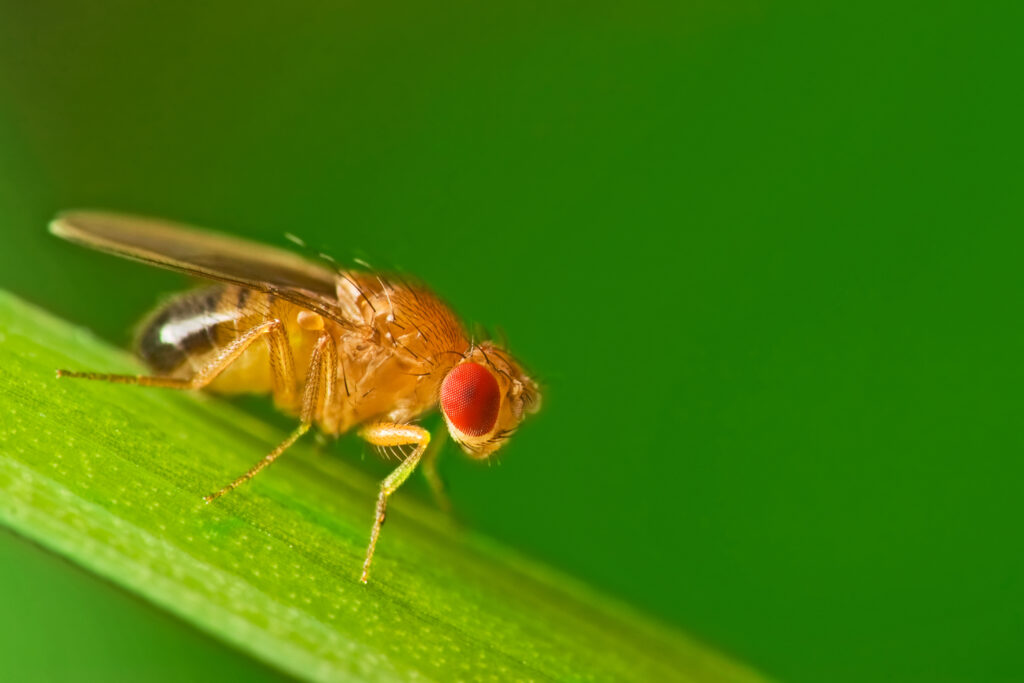
In 2020, the Fly Board voted to use part of its reserve fund to support efforts to increase trainee participation as well as equity and diversity in the Drosophila community. An awards committee decides how the money will be spent each year, and from 2020–2022, the committee posted a very broad call for applications from non-profit programs that introduce middle school, high school, or college students to Drosophila research. Five or six such applications were funded in each of the three years, and the programs have recruited a diverse set of students worldwide to learn about working with flies. This year’s awarded programs and individuals are:
eCLOSE provides training in genetics research to participants from age 10 through retirement. The Fly Board award supported eight undergraduates in their most advanced program, the Undergraduate Bridge to Research. Over the course of 10 weeks during the summer, participants identified a major health challenge facing a community that was meaningful to them on a personal level. They conducted a chemical genetic screen to identify nutrients that might alter phenotypes in fly models of the disease of interest. Leveraging those results, the students designed independent research projects ranging from biochemical analysis of signaling pathways to developmental biology of ovaries, brains, intestines, and social behavior changes among treated and/or mutant flies. Two students have already attained research positions in fly labs, with plans to use their work for honors thesis and capstone projects as they complete their undergraduate degrees. The Fly Board award provided the reagents and materials needed for students to conduct their independent work, expanding the experimental options available and increasing the depth of the research.
The Drosophila Stock Center at the University of Mysore, Karnataka, India is currently maintaining a collection of 50 Drosophila species and over 2,000 stocks that are provided to researchers and teaching faculty at colleges and universities in India for use in teaching and learning genetics. The Stock Center also trains teachers and individual researchers through hands-on training workshops and short-term collaborations. The Fly Board funding was used to support a hands-on training program in December 2023 to introduce teachers of undergraduate students in India to lab techniques that they can then use in their classes. The workshop covered morphology, genetic mutants, polytene chromosome inversions, use of Drosophila for understanding biological inheritance, behavioral exercises, collection and categorization of wild type Drosophila, study of polygenic traits, and study of gene expression using reporter constructs.
Games of Flies and Genes is the new, ambitious project of Engage Nepal with Science that will be supported by Fly Board funding. It aims to encourage science educators in Nepal to work collaboratively with fly researchers to make their genetics lessons more interactive and dynamic and facilitate the learning of this important part of the biology curriculum. The project involves four fly researchers from the US and Nepal, who will work directly with educators and students from five schools in Nepal to explore Drosophila genetics and gain hands-on experience with fly research by visiting the Research Institute for Bioscience and Biotechnology. Participants will learn about Drosophila through various engaging methods, look at flies under the microscope, play a game based on genes and laws of heredity, and will also make their own fly models with modeling clay. These workshops have the potential to revolutionize the field of genetics education in Nepal, offering students an experience that will not only deepen their understanding of genetics but also inspire the next generation of scientists.
Osamu Shimmi is using Fly Board funding for an outreach initiative to improve Drosophila research and education in Estonia. His outreach efforts aim to develop easy-to-use study materials on Drosophila for middle and high school students in the Estonian language. He also writes articles for a popular science magazine to introduce Drosophila as a learning model for biology teachers in middle and high school. On September 29, 2023 he hosted school children in the lab as part of the activities for Science Day at the University of Tartu, Estonia, to promote Drosophila research through outreach.
Small But Mighty: Drosophila as a Powerful Tool for Biomedical Research is aimed at educating secondary school students in Akure, Nigeria, about the possibilities of Drosophila research, and providing them with educational materials to take back to their schools. The Fly Board-funded workshop was hosted at the Federal University of Technology Akure in November 2023 and featured lectures on basic Drosophila husbandry and genetics, practical hands-on activities, career talks, and more. Nilda Barbosa, a professor from the Universidade Federal de Santa Maria, Brazil, gave a virtual lecture, while Ganiyu Oboh and Adedayo Ademiluyi from the Federal University of Technology Akure, Nigeria spoke in person. This event had a large impact on awareness of Drosophila research in Nigeria and has the potential to be self-sustaining.
Enhancing Biology Education held a three-day workshop in November 2023, funded by the Fly Board, to train teachers-in-training (B.Sc(ed.)/B.Ed students) in Nigeria on the utilization of Drosophila as a cost-effective teaching tool in high school biology. Of the 20 in-person participants, 60% were females from underrepresented regions in Nigeria. Additional applicants were able to join virtually. The workshop ran from 9 a.m. to 6 p.m. each day and the curriculum included talks, practical sessions, and micro-teaching.





























